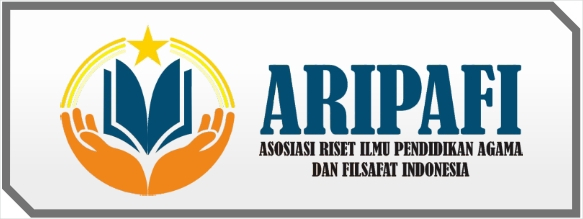Konsep Dasar Belajar dalam Pembelajaran Online: Tren, Masalah, dan Solusi
DOI:
https://doi.org/10.59581/jpat-widyakarya.v2i2.2900Keywords:
Basic Learning Concepts, Online Learning, Trends, Problems, SolutionsAbstract
Online learning has become a significant trend in modern education. The basic concept of learning in online learning plays a key role in dealing with the challenges and problems that arise along with technological development. The main trend in online learning involves increased accessibility and flexibility. Technological advances allow learners to access course materials from anywhere and at any time. However, emerging issues include lack of social interaction and feelings of isolation. The basic concept of effective learning in online learning should address these issues. This research aims to examine the basic concept of learning in online learning: trends, problems and solutions. This research uses qualitative method with literature study taken from various sources, including print media, electronic media, books and electronic journals. The research technique is done through exploration and journal search through Google Scholar related to the basic concept of learning in online learning. As for primary and secondary sources in the form of scientific papers that have been published with a high credibility index, namely Sinta 2 to Sinta 5. The results of data analysis are taken from a literature review by means of researchers collecting data, and complete information from various data collection procedures and with a specified time. The collected data is analyzed by using descriptive method to reveal the facts of events written in statements derived from the data sources studied. The results show that, online learning is a growing trend in education. The basic concept of effective learning should consider accessibility, interaction, motivation, and evaluation. Careful solutions are recommended to overcome the problems that arise in online learning and ensure a meaningful learning experience for all participants.
References
Alyusfitri, Rieke, and Yusri Wahyuni. “Analisis Diagnostik Kesulitan Belajar Mahasiswa PGSD Pada Mata Kuliah Konsep Dasar Matematika II.” Al-Jabar : Jurnal Pendidikan Matematika 8, no. 2 (December 18, 2017): 145. https://doi.org/10.24042/ajpm.v8i2.1940.
Anshori, Muhamad. “Konsep Dasar Belajar Dan Pembelajaran Dalam Perspektif Al-Qur’an.” Dirasah: Jurnal Pemikiran Dan Pendidikan Dasar Islam 1, no. 1 (2019): 52–63.
Atmojo, Idam Ragil Widianto. “Pengaruh Penggunaan Metode Discovery Berbasis Media Realita Terhadap Hasil Belajar Matakuliah Konsep Dasar Ipa 1.” Mimbar Sekolah Dasar 2, no. 2 (January 28, 2016): 130–39. https://doi.org/10.17509/mimbar-sd.v2i2.1324.
Allen, I. E., & Seaman, J. (2017). Digital Compass Learning: Distance Education Enrollment Report 2017. Babson survey research group.
Anderson, T., & Dron, J. (2011). Three generations of distance education pedagogy. International Review of Research in Open and Distributed Learning, 12(3), 80-97.
Aziz, A. N., Rahmatullah, A. S., Makrufi, A. D., & Samsudin, M. (2022). Pembelajaran Online dalam Perspektif Teori Behavioristik. Ideas: Jurnal Pendidikan, Sosial, dan Budaya, 8(4), 1285-1298. DOI: https://doi.org/10.32884/ideas.v8i4.1055
Azizah, A. (2017). Studi kepustakaan mengenai landasan teori dan praktik konseling naratif (Doctoral dissertation, State University of Surabaya).
Baker, R. S., D'Mello, S. K., Rodrigo, M. M., & Graesser, A. C. (2010). Better to be frustrated than bored: The incidence, persistence, and impact of learners' cognitive–affective states during interactions with three different computer-based learning environments. International Journal of Human-Computer Studies, 68(4), 223-241.
Bonk, C. J., & Graham, C. R. (2012). The handbook of blended learning: Global perspectives, local designs. John Wiley & Sons.
Chrisnaji Banindra Yudha. “Peningkatan Motivasi Belajar Mahasiswa Pada Mata Kuliah Konsep Dasar Matematika Melalui Pendekatan Contextual Teaching and Learning.” Jurnal Pendidkan Dasar 5, no. 3 (2020): 248–53. https://doi.org/doi.org/10.21009/JPD.091.02.
Deci, E. L., Vallerand, R. J., Pelletier, L. G., & Ryan, R. M. (1991). Motivation and education: The self-determination perspective. Educational psychologist, 26(3-4), 325-346.
Dillenbourg, P. (1999). Collaborative learning: Cognitive and computational approaches. advances in learning and instruction series. Elsevier Science, Inc., PO Box 945, Madison Square Station, New York, NY 10160-0757.
European Parliament and Council. (2016). Regulation (EU) 2016/679 of the European Parliament and of the Council of 27 April 2016 on the protection of natural persons with regard to the processing of personal data and on the free movement of such data, and repealing Directive 95/46/EC (General Data Protection Regulation)
Fahmi, N, Dzakiah, F Alhabsyi, and Mudaimin. “Dinamika E-Learning Pada Model Pembelajaran Di Perguruan Tinggi (Tinjauan Kondisi Teknologi Di Masa Pandemi Covid-19).” Iqra: Jurnal Ilmu Kependidikan Dan Keislaman 17, no. 2 (2022): 44–51.https://www.jurnal.unismuhpalu.ac.id/index.php/IQRA/article/download/2260/2199.
Febriyanti, C. (2015). Pengaruh Bentuk Umpan Balik dan Gaya Kognitif terhadap Hasil Belajara Trigonometri. Formatif: Jurnal Ilmiah Pendidikan MIPA, Vol 3 (3) 2023. DOI: http://dx.doi.org/10.30998/formatif.v3i3.125
Fitriya, Devi, Ina Magdalena, and Nur Fauziah Fadhillahwati. “Konsep Pembelajaran Daring Di Era Pandemi Covid-19.” Cerdika: Jurnal Ilmiah Indonesia 1, no. 3 (March 25, 2021): 182–88. https://doi.org/10.59141/cerdika.v1i3.30.
Gil, Jose S., and John W. Luton. “Iberian Explorations in Eastern North America During the 1500s: A Lost Chapter in U.S. History.” The International Journal of Interdisciplinary Social Sciences: Annual Review 4, no. 9 (2009): 51–58. https://doi.org/10.18848/1833-1882/CGP/v04i09/51542.
Garrison, D. R., & Anderson, T. (2003). E-Learning in the 21st century: A framework for research and practice. Routledge. DOI:10.4324/9780203838761.
Garrison, D. R., Anderson, T., & Archer, W. (2000). Critical inquiry in a text-based environment: Computer conferencing in higher education. The Internet and Higher Education, 2(2-3), 87-105.
Gee, J. P. (2003). What video games have to teach us about learning and literacy. Computers in entertainment (CIE), 1(1), 20-20.
Hernawan, Asep Herry, and Novi Resmini. “Konsep Dasar Dan Model-Model Pembelajaran Terpadu.” Pembelajaran Terpadu 1, no. 1 (2015): 1–35. http://repository.ut.ac.id/4039/1/PDGK4205-M1.pdf).
Hutton, A., & Henderson, A. (2015). Towards ethical use of learning analytics: A review of the literature. Australasian Journal of Educational Technology, 31(5), 687-706.
I Ketut Agus Arta Diva Anggara, Hosea Richard Sutanto, Mirabelle Gracecia Kondang. “Analisis Komunitas Online ‘Tersalur’: Dinamika Menyalurkan Amal Di Tengah Pandemi.” Dinamika Sosial Budaya 24, no. 2 (2022): 425–72. http://journals.usm.ac.id/index.php/jdsb.
Inggriyani, Feby -, Acep Roni Hamdani, and Taufiqulloh Dahlan. “Minat Belajar Mahasiswa Dengan Menggunakan Blended Learning Melalui Google Classroom Pada Pembelajaran Konsep Dasar Bahasa Indonesia SD.” PEMBELAJAR: Jurnal Ilmu Pendidikan, Keguruan, Dan Pembelajaran 3, no. 1 (May 15, 2019): 28. https://doi.org/10.26858/pembelajar.v3i1.8649.
Jonassen, D. H. (1991). Objectivism versus constructivism: Do we need a new philosophical paradigm? Educational technology research and development, 39(3), 5-14.
Kristin, Firosalia, and Fransiska Kencana Sari. “Pengaruh Kedisiplinan Belajar Terhadap Hasil Belajar Mahasiswa Dalam Mata Kuliah Konsep Dasar IPS.” JURNAL PENDIDIKAN ILMU SOSIAL 28, no. 1 (June 28, 2019): 31. https://doi.org/10.17509/jpis.v28i1.17810.
Lanud, Sukirman, and Roesmin Nurjadin. “Menyusun Jejak Sukses : Tantangan Dan Solusi Dalam Penerapan Konsep Learning Organization Di Rsau” 1, no. 1 (2023): 56–64. https://publikasi.abidan.org/index.php/komunika/index.
Laurensius Arliman S. “Dinamika Dan Solusi Perlindungan Anak Di Sekolah.” Jurnal Selat 4, no. 2 (2017): 219–33.
Mubarok, Ramdanil. “Dinamika Lembaga Pendidikan Dasar Dalam Pengelolaan Pembelajaran Daring.” Pedagogi: Jurnal Ilmu Pendidikan 21, no. 1 (April 30, 2021): 10–20. https://doi.org/10.24036/pedagogi.v21i1.1033.
Muna, Muhammad Shofiyyul, and Sari Puteri Deta Larasati. “Dinamika Pembelajaran Online Di Era Covid-19 Terhadap Perkembangan Kreativitas Anak.” EDUKATIF : JURNAL ILMU PENDIDIKAN 3, no. 4 (September 3, 2021): 2391–99. https://doi.org/10.31004/edukatif.v3i4.827.
Mayer, R. E. (2014). Interactive multimedia learning: Adding the "active" to multimedia learning. Psychology of Learning and Motivation, 61, 59-83.
Means, B., Toyama, Y., Murphy, R., Bakia, M., & Jones, K. (2009). Evaluation of evidence-based practices in online learning: A meta-analysis and review of online learning studies. US Department of Education.
Moore, M. G., & Kearsley, G. (2011). Distance education: A systems view of online learning. Cengage Learning.
Mursyidi, W. (2019). Kajian Teori Belajar Behaviorisme Dan Desain Instruksional. Almarhalah, 3(1), 33-38. DOI: https://doi.org/10.38153/almarhalah.v3i1.30
Pamungkas, Alim Harun. “Problems , Challenges , Dynamics and Supervision Innovation on Nonformal Education In Indonesia.” SPEKTRUM: Jurnal Pendidikan Luar Sekolah 11, no. 2 (2023): 266–76. https://doi.org/10.24036/spektrumpls.v11i2.
Pianda, Didi, Rahmiati. “Peningkatan Kreativitas Siswa Dalam Pembelajaran Matematika Dengan Google Classroom Sebagai Kelas Digital Berbantuan Aplikasi Geogebra.” Al Khawarizmi: Jurnal Pendidikan Dan Pembelajaran Matematika 4, no. 2 (2020): 93–111.
Putri, Pangestu Gusti, and Idris Idris. “Online Learning: Dinamika Pembelajaran Selama Pandemi Dalam Persepsi Mahasiswa.” Jurnal Pendidikan Ilmu Sosial 32, no. 1 (June 20, 2022): 28–40. https://doi.org/10.23917/jpis.v32i1.16138.
Palloff, R. M., & Pratt, K. (2013). Lessons from the virtual classroom: The realities of online teaching. John Wiley & Sons. 45.
Payong, M. R. (2020). Zona perkembangan proksimal dan pendidikan berbasis konstruktivisme sosial menurut Lev Semyonovich Vygotsky. Jurnal Pendidikan Dan Kebudayaan Missio, 12(2), 164-178.
Ratnawati, Franciska Ayuningsih. “Pengembangan Model Pembelajaran Problem Posing Berbantuan Edmodo Untuk Meningkatkan Pemahaman Konsep Siswa Pada Materi Fluida Dinamis.” DIFFRACTION 2, no. 1 (June 30, 2020): 9–23. https://doi.org/10.37058/diffraction.v2i1.1665.
Sari, Ifit Novita, Annisa Daud, Pajar Oktavia, and Vina Apriwanti. “Dinamika Pembelajaran Online Di Masa Pandemi Covid-19 Pada Siswa Sekolah Dasar.” Jurnal Pengabdian Dharma Wacana 2, no. 4 (February 5, 2022): 189–94. https://doi.org/10.37295/jpdw.v2i4.207.
Simangunsong, Venny Herawati, Maria Isadora Simangunsong, and Bung Heri Parhusip. “Efektivitas Pembelajaran Web Menggunakan Google Classroom Terhadap Hasil Belajar Siswa Pada Materi SPLDV Kelas X SMA.” Jurnal Dinamika Pendidikan 14, no. 1 (2021): 187–95. http://ejournal.uki.ac.id/index.php/jdpDOI:https://doi.org/10.51212/jdp.v14i1.
Salmon, G. (2013). E-tivities: The key to active online learning. Routledge. 55.
Siemens, G. (2005). Connectivism: A learning theory for the digital age. International Journal of Instructional Technology and Distance Learning, 2(1), 3-10.
Siemens, G., & Tittenberger, P. (2009). Handbook of emerging technologies for learning (p. 65). Canada: University of Manitoba.
Steinkuehler, C., & Duncan, S. (2008). Scientific habits of mind in virtual worlds. Journal of Science Education and Technology, 17(6), 530-543.
Strauss, A., & Corbin, J. (2003). Penelitian Kualitatif. Yogyakarta: Pustaka Pelajar.
Suparlan, Suparlan. 2019. “Teori Konstruktivisme Dalam Pembelajaran”. ISLAMIKA 1 (2), 79-88. https://doi.org/10.36088/islamika.v1i2.208.
Sutarto, S. (2017). Teori kognitif dan implikasinya dalam pembelajaran. Islamic Counseling: Jurnal Bimbingan dan Konseling Islam, 1(2), 1-26. DOI: http://dx.doi.org/10.29240/jbk.v1i2.331
Usman, Usman. “Komunikasi Pendidikan Berbasis Blended Learning Dalam Membentuk Kemandirian Belajar.” Jurnal Jurnalisa 4, no. 1 (January 16, 2019): 136–50. https://doi.org/10.24252/jurnalisa.v4i1.5626.
VanLehn, K. (2011). The relative effectiveness of human tutoring, intelligent tutoring systems, and other tutoring systems. Educational psychologist, 46(4), 197-221.
Yanti Nurhayati, Ghina Ulpah, Muhtadin Muhtadin, Miftahul Huda, and Kemal Al Kautsar Mabruri. 2024. “Pengaruh Penggunaan Teknologi Digital Terhadap Prestasi Belajar Siswa Pada Mata Pelajaran Pai : (Studi Kasus Di Kelas 5 SD Darul Hikam Bandung)”. Garuda: Jurnal Pendidikan Kewarganegaraan Dan Filsafat 2 (1):100-135. https://doi.org/10.59581/garuda.v2i1.2442.
Wahyudi, Wahyudi, and Denok Sunarsi. “Manfaat Penerapan Manajemen Pengetahuan Bagi Kinerja Dosen Di Masa Pandemi Covid-19.” JPPI (Jurnal Penelitian Pendidikan Indonesia) 7, no. 2 (August 30, 2021): 285–91. https://doi.org/10.29210/020211155.
Wau, Victorius. “Dinamika Pendidikan Agama Kristen Pada Masa Pandemi Covid-19: Analisis Kompetensi Pedagogik Yesus Dalam Injil Matius.” Angelion: Jurnal Teologi Dan Pendidikan Kristen 1, no. 2 (December 31, 2020): 132–48. https://doi.org/10.38189/jan.v1i2.72.
Wiluya, Y, and R O Khastini. “Pembelajaran IPS Menuju Era Revolusi Industri 4.0 Di Era New Normal Pandemi Covid-19.” Jurnal Education And Development 10, no. 3 (2022): 193–97. http://journal.ipts.ac.id/index.php/ED/article/view/3860%0Ahttps://journal.ipts.ac.id/index.php/ED/article/download/3860/2579.
















